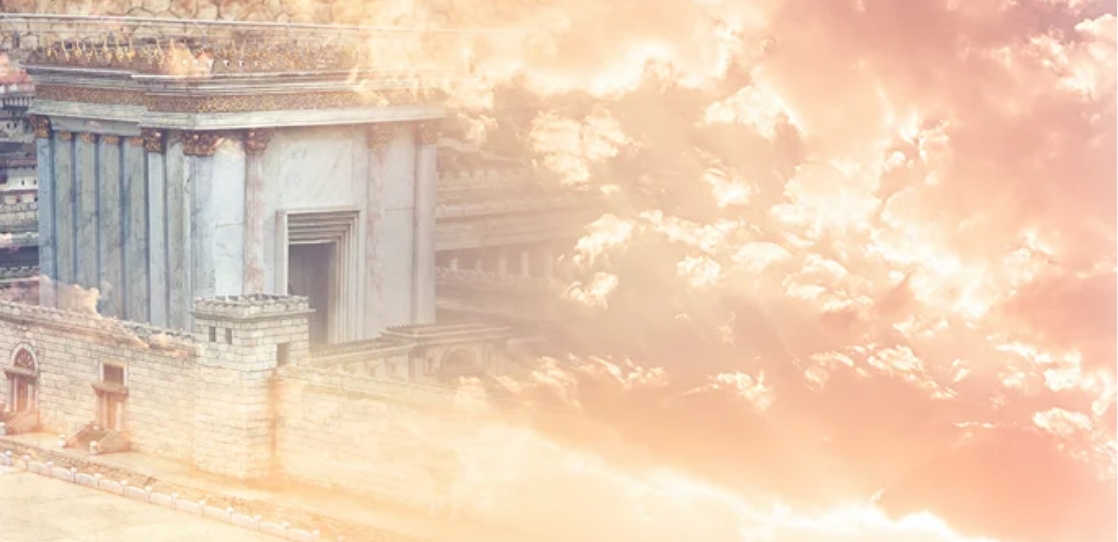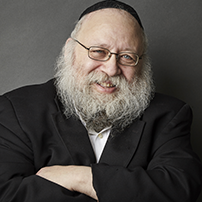
Mourning and sadness are not the most natural Jewish feelings. How do we relate to Judaism’s saddest period of the year, the period beginning with the Seventeenth of Tammuz and culminates with Tisha B’Av, the anniversary of the destruction of Jerusalem and the two Holy temples?
One of the most poignant stories recounted by our Talmudic sages sheds light on the way we should relate to this period.
The illustrious sage, Rabbi .Akiva was traveling with his colleagues. “When they came to the Temple Mount they saw a fox emerging from the [ruins of the] Holy of Holies [of the destroyed Temple in Jerusalem], they started to weep, but Rabbi Akiva laughed.”
Astonished at Rabbi Akiva’s bizarre reaction to a most troubling spectacle, they queried him: “Why are you laughing?”
Rabbi Akiva’s responded by referring to the prophet Isaiah who linked the prophecies of Uriah who prophesied about the destruction of the first Temple, and Zecharya who prophesied during the era of the Second Temple, as if they were contemporaries. What connection is there between these two -historically speaking – remote individuals?
The connection, Rabbi Akiva, explains is that the first prophet spoke of the utter devastation to be visited upon the Temple, while the other spoke of the rebuilding of Jerusalem. As long as I didn’t see the fulfillment of the first prophecy of doom materialize before my eyes, I was not assured of the realization of the second prophecy of hope and rebuilding.. Now that I’ve seen the prophecy of destruction come to life, I am assured that the second prophecy of hope will likewise come to fruition. (Talmud, end of Makkot).
An obvious question arises. How is it that a man the caliber of Rabbi Akiva should have harbored doubts as to whether the prophecy concerning the rebuilding of Jerusalem and the Temple would come true? Why did he need confirmation of the “good” prophecies from the fulfillment of the “bad” ones?
In truth, Rabbi Akiva, had no doubts about any of the prophecies. He knew that if G-d had said, through his prophet, that the Jews would return to the Land of Israel, they certainly would. If we were told by the prophet that the Temple would be rebuilt, we were confident – and, certainly, Rabbi Akiva was confident – that it would come to pass. Rabbi Akiva’s concern was, however, to what extent the prophecy of hope would materialize. How magnificent will be the return to Zion.
In a world of relative values, a little suffering is far better than much suffering. Jews, in returning to the Land of Israel, with Jerusalem as its capital and a rebuilt Holy Temple, would enjoy security, peace and self-respect. That is certainly preferable to a life of misery and suffering.
Rabbi Akiva’s question, therefore, was: are the Messianic predictions – that will soon come to fruition – going to be good only in contrast to the misery we have experienced throughout our exile. From that vantage point, any good we will have is better than what we have presently. But, if the Jewish people were to suffer so harshly, to anticipate only the relative goodness and happiness in the future, they would hardly feel consoled. It certainly would not call for any expression of joy while their suffering is acute. If all we had to look forward to was some marginal respite from the horrors of the past, no positive emotions could have been evoked.
But, when Rabbi Akiva realized that G-d placed the two prophecies together – the prophecy of destruction and the prophecy of rebuilding – it was to demonstrate that the magnitude of the good we will experience will be commensurate with the magnitude of the evil. It will be pure, unmitigated good, just as the evil and misery was horrific in the extreme. Now that Rabbi Akiva saw how utterly devastating the destruction of the Temple was, he knew with utmost certainty that the era of Redemption, with the rebuilding of Jerusalem and the Temple, will, likewise, be so utterly great; the good will be absolute and intrinsic, not just partial and relative.
Our century has experienced that which no century before us has. We are now barely one half century after the greatest destruction of Jewry in history – the Holocaust. For over seventy years, millions of Jews experienced ruthless and persistent oppression in the Soviet Union. We had to endure wars of survival against those Arab armies who sought to drive us into the sea. And we are still plagued with terrorist bombings.
On the spiritual side, our century – like no other period in history – sustained a loss of millions by way of a tidal wave of assimilation, deterioration of Jewish knowledge and commitment to Judaism. Millions of Jews have lost their ties with their G-d, Torah and people in an unprecedented fashion; and millions more are now threatened with extinction. We can hardly imagine an exile so harsh and extreme in the negative side.
But, precisely because of our collective negative experience, in the spirit of Rabbi Akiva’s realization, we now know that the return of the Jewish nation to Zion, the rebuilding of the Temple, the emergence of true peace in the world, i.e., the Messianic Age of Redemption that we’ve been praying for thousands of years, will be so utterly magnificent and complete in the extreme.
This awareness of the imminent happiness, compels us to feel an inner feeling of joy, even as we must outwardly observe the laws of mourning during this period of Three Weeks, as long as the Redemption is not complete. Our anticipation of a bright future, gives us confidence and enthusiasm now, to march forward, in transforming our little world as well as the world around us into a Redemption oriented world.
Our generation has the added qualification. The Rebbe has told us in no uncertain terms that “The time of your Redemption has arrived,” and that our task is to “open our eyes to this new reality.” In the simplest of terms, this awareness, joy and excitement at the prospects of the near future, must enhance our commitment to Jewish learning and practice and an increased preparedness for the imminent Redemption!


